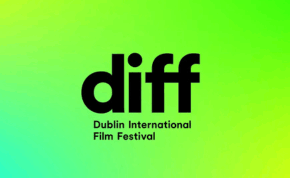Council takes steps to reduce pesticide use
Padraig Conlon 19 Jun 2025
South Dublin County Council has reaffirmed its commitment to reducing the use of pesticides, insecticides, and herbicides in the county, with a focus on more sustainable and environmentally friendly practices.
In last week’s council meeting, Cllr Francis Timmons raised a question regarding the possibility of reducing or completely stopping the use of such chemicals, citing the example of Tidy Town groups who rely on hand or small tool weeding to manage local spaces.
The effort from these community groups was highlighted as a superb model of environmentally conscious maintenance.
In response, the Chief Executive outlined the council’s ongoing efforts to minimize pesticide use, particularly glyphosate, a common herbicide.
A partial ban on glyphosate was first adopted by the council in July 2017, which remains in effect in public parks, gardens, and play spaces.
In these areas, weed growth is managed through hand removal, strimming, mowing, and even allowing vegetation to grow to foster biodiversity.
Since 2019, the council has significantly shifted its approach to managing open spaces, with over 210 hectares of meadows, both long and short flowering, now established across the county.
This initiative not only helps to support local biodiversity but also aligns with the council’s broader goals outlined in the Pollinator, Biodiversity, and Climate Action Plans.
Despite these advancements, glyphosate is still used in certain areas, notably on high-profile entrance roads and in road sweeping services where control of weeds on hard surfaces is necessary.
However, the council has actively reduced its use of herbicides, reporting a 13% reduction in glyphosate usage over a three-year period from 2022 to 2024.
A new contract for road sweeping services, which is the council’s largest herbicide user, now includes a requirement for a 10% annual reduction in glyphosate use.
This will be achieved through alternative, environmentally friendly weed control methods, ultimately halving the council’s glyphosate usage over the life of the contract.
Furthering its sustainability goals, the Chief Executive said South Dublin County Council has collaborated with Kildare County Council and other local authorities in a research program aimed at identifying viable alternatives to herbicides.
This partnership led to the 2024 publication of guidelines on increasing biodiversity and reducing herbicide use in public open spaces.
The guidelines encourage the use of alternative weed control methods, native planting, and biodiversity-led maintenance strategies.
Several alternative weed control methods, including Hot Foam and Hot Water treatment, have been trialed but have not proven effective due to low weed mortality rates and the need for frequent reapplications.
More recently, the council has experimented with ‘electro-physical’ destruction of weeds, but, as with previous methods, this approach did not yield satisfactory results.
Despite these setbacks, the council remains committed to exploring and trialing new methods until a range of alternatives is found that work in the various environments it maintains.
The Chief Executive concluded by saying that while the complete removal of glyphosate from all council operations is not yet feasible, particularly in controlling invasive species like Japanese Knotweed, the ongoing trials and gradual reduction of herbicide use reflect the council’s proactive efforts to reduce its environmental impact.
The council’s ongoing work in this area is a clear example of how local authorities are adapting their practices to meet sustainability targets, with a clear commitment to reducing harmful pesticide use in favour of more natural, biodiversity-friendly solutions.











